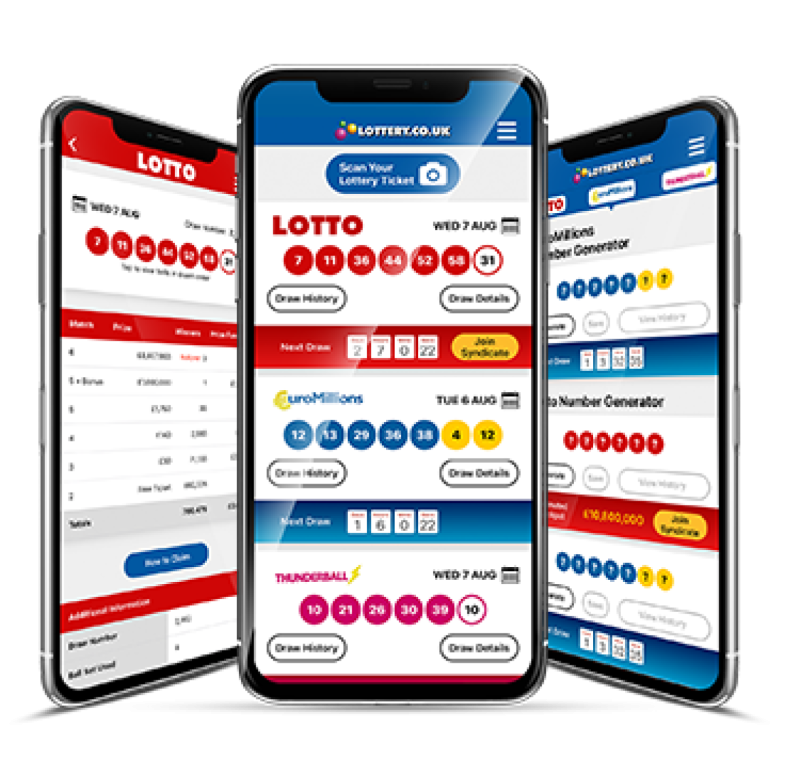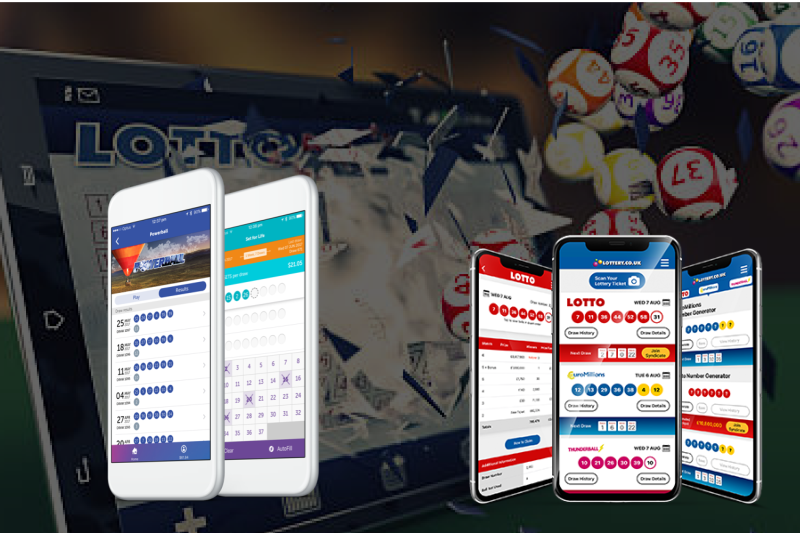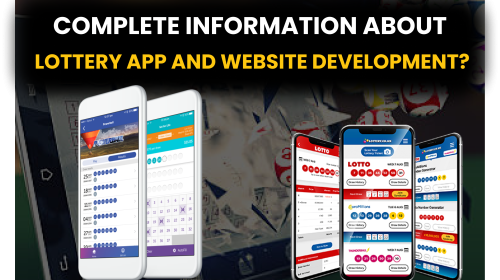Get in your inbox the latest News and Offers from
The Journey of Lottery App and Website Development?
- Blog Detail
- Home
The Journey of Lottery App and Website Development?
- 02 Nov, 2023
Everything from groceries to social interactions has found its way into the digital world. The world of gambling is no exception. With the rise of online gaming, lottery enthusiasts can now indulge in their favorite sport from the comfort of their homes, thanks to lottery apps and websites.
In the digital age, lottery games have not only survived but bloomed. The convenience and accessibility of these platforms have brought a new level of excitement to the concept of testing one's luck. In this blog, we will explore the world of lottery app and website development, delving into the key features, challenges, and the potential for innovation in this rapidly evolving industry. Exploring the technology behind it, its advantages, and the steps involved in creating one.
What is a Lottery App and Website?

A lottery app and website are digital platforms that allow users to participate in lotteries and manage their lottery-related activities online. These platforms are designed to provide a convenient and user-friendly way for individuals to buy lottery tickets, check results, and access various lottery-related services.
Some popular Lottery Apps and Websites and their Development Cost
In India, various lottery apps and websites are evolving. All these apps and websites are safe and secure to use and operate. Some of the best online lottery apps and websites are Lotto India, Playwin, MyLotto, Lottoland, Lotomart, Online Lottery, and many more.
Cost of developing an app and website like this generally costs around Rs 2-3 lakhs with basic features, if you want advanced and additional features, cost of development increases. For developing these types of apps, meratemplate.com is a good option for you, explore this website and build your dream app.
Business Model of Lottery App & Website

A lottery app and website typically operate on a business model that generates revenue through various means, primarily by facilitating the sale of lottery tickets, offering games of chance, and potentially providing additional services or features. Here's an overview of the business model for a lottery app and website:
- Ticket Sales: The primary source of revenue for a lottery app and website is the sale of lottery tickets. These platforms allow users to purchase tickets for various lotteries, including national and international ones. The platform typically takes a commission or service fee on each ticket sold. This commission can vary depending on the lottery and the ticket price.
- Subscription Services: Some lottery apps offer subscription services, allowing users to purchase tickets for multiple drawings over a specified period. Subscribers may receive discounts or bonuses for committing to multiple draws in advance.
- Instant Win Games: Many lottery apps and websites offer instant win games, such as scratch-off tickets, slots, or other games of chance. Players can purchase and play these games, with the platform taking a percentage of the money as revenue.
- Advertisement Revenue: Lottery apps and websites can generate revenue through advertising. They can display ads from various advertisers and charge them based on impressions, clicks, or other advertising metrics.
- In-App Purchases: Some apps offer virtual items, power-ups, or other enhancements that users can purchase within the app. This can provide an additional stream of revenue.
- Data Monetization: Apps may collect user data and monetize it by selling insights or targeted advertising to third parties. This is often done while complying with privacy regulations.
- Affiliate Programs: Lottery apps can partner with other businesses, such as online casinos, to promote their services. They can earn commissions on players they refer to these partner sites.
- Loyalty Programs: Implementing loyalty programs can incentivize repeat usage of the app or website, encouraging customers to buy more tickets and play more games. These programs can come with membership fees or tiers with varying benefits.
- Partnerships with Lotteries: Some apps and websites enter into partnerships with official lottery organizations. In such cases, they may become authorized distributors or receive special rights to sell tickets, sharing revenue with the official lottery provider.
- Cross-Selling: Some apps may cross-sell other products or services, such as financial planning or investment services, to their customers, capitalizing on their interest in games of chance.
- Subscription Models: Introduce premium subscription plans that offer users exclusive benefits, such as faster ticket purchase, access to exclusive games, or special promotions.
- Donations and Charity: Some lottery platforms allocate a portion of their earnings to charitable causes, which can help attract socially conscious users and may be mandated by regulations in some regions.

Earnings in Lottery App and Website Development
- Market Demand: The demand for lottery apps and websites can vary by region. In some areas, lottery games are highly popular, while in others, the interest may be lower. Conduct thorough market research to understand the demand in your target market.
- Licensing and Regulations: Lotteries are often regulated by governments, and you may need to obtain licenses to operate legally. Compliance with all relevant laws and regulations is crucial but can also come with costs and administrative requirements.
- Features and Functionality: The features you offer can significantly impact your earnings. Common features include purchasing tickets, checking results, and setting up recurring plays. More advanced features like syndicate play, instant win games, and social features can attract more users.
- Monetization Strategies: There are various ways to monetize a lottery app or website like ticket sales, advertising, in-app purchases, subscription model, affiliate marketing, sponsorships, and so on.
- Marketing: Marketing is critical to attract users to your platform. Effective marketing campaigns can be costly but are essential for success.
- Security and Trust: Security and trust are paramount in the gambling industry. Ensure your platform is secure to protect user data and maintain trust.
- User Engagement: Keeping users engaged and coming back is essential for long-term success. Provide a seamless user experience and consider loyalty programs.
- Competition: The level of competition in your target market will also impact your earnings. If there are many established lottery apps and websites, it can be more challenging to gain market share.
- Costs: Developing and maintaining a lottery app and website can be costly. You'll need to factor in development, hosting, legal, and operational costs.
- User Base: The size of your user base plays a significant role in your earnings. The more users you have, the more potential for revenue.
Features of Lottery App and Website Development

- Ticket Purchase: Users can buy lottery tickets for various official lotteries, such as Powerball, Mega Millions, or state lotteries, through the app or website.
- Number Selection: Users can choose their own numbers or use quick-pick options to have numbers randomly generated for them.
- Results Checking: Users can check the winning numbers for various lottery games to see if they have won any prizes.
- Ticket Management: Users can store and manage their digital lottery tickets within the app or website.
- Notifications: The app or website may send notifications to users when lottery results are available or if they have won a prize.
- Prize Claiming: Some platforms allow users to claim smaller prizes through the app or website, while larger prizes may require a visit to a physical lottery office.
- Jackpot Tracking: Users can track the current jackpot amounts for different lotteries.
- Drawing Schedules: The app or website provides information about upcoming lottery drawings and their schedules.
- Payment Processing: Users can fund their accounts and purchase tickets using various payment methods, such as credit/debit cards or digital wallets.
- Security: Lottery apps and websites implement security measures to protect user data and transactions.
- Location Services: Some platforms may use location services to ensure users are within the jurisdiction where the lottery is legal.
- Responsible Gaming: They may offer resources and features to promote responsible gambling practices.
Conclusion
The development of lottery apps and websites has revived the world of lotteries, offering convenience, accessibility, and an improved user experience. As technology continues to evolve, so too will the features and innovations in this industry. However, developers must remain attentive about legal compliance, security, and user trust to ensure the continued success of these platforms. The future is bright for lottery apps and websites, offering both developers and players exciting opportunities and experiences in the world of chance and skill.

Contact us: 8888647482
Email id: sunil@meratemplate.com
YouTube - https://www.youtube.com/c/MeraTemplate
Thank you so much for taking time to read my article.

